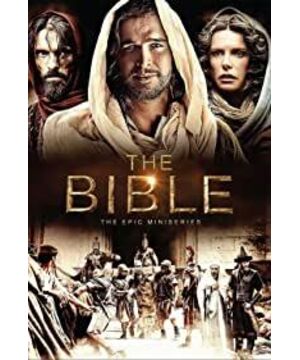your major?
--Religious Studies.
--Are you religious? Which teach?
--I'm not a follower of any religion.
Or,
-- why do you often post verses from the Bible or Buddhist scriptures? I thought you were not religious.
--I'm not religious, but I agree with this statement.
People who study religion must/need to believe in religion, and people who believe in one religion cannot be successful in the research field of other religions. These can be regarded as several stereotypes about religious researchers. Although the subjectivity and objectivity of researchers are often drawn into discussions on these topics, this is not what this review intends to address. I would like to talk about some of my views on "how to face religious believers".
Generally speaking, people who are skeptical of religious beliefs will try to disprove the authenticity of beliefs with various reasons and evidences, such as scientific theories (typically, "Whether the miracles performed by Jesus are really possible"), such as Historical data (typically, "Whether Jesus was really resurrected" does not seem to have conclusive evidence historically). If you ask me: Do you really believe what they say? I will answer: Many things need to be proven, not because they are believed, but because they are suspected. For their belief, if they never doubt it, why have to prove that it is true and that it really exists? This is not to stop everyone's curiosity or to deny everyone's insistence on reasoning, but because the two sides' positions are not in the same dimension, everything is right or wrong. . What is "effective"? Interactive communication that enables each other to achieve and understand each other is effective.
Harvard religious scholar Diana Eck proposes a new interpretation of Pluralism in the context of the increasingly diverse American religious ecology. To sum it up simply, it is "seeking common ground while reserving differences". Seemingly simple is actually not the case. There are multiple divisions within pluralism (there are no fixed dividing points, but in the form of a spectrum), the most basic is negative pluralism (as long as you don't have contact with people of other religions, just treat others with respect can be) and active pluralism (on the basis of recognizing and respecting other religions, even if in doubt, still actively interact and communicate to achieve more understanding).
This is probably the case with the discussion of religion. People have the right to doubt, but if they follow the logic of black and white to judge with others, and try to use doubts to block themselves and the wisdom contained in the story to achieve mutual communication, it would be too arbitrary. Although "The Bible" has its flaws in its production and is not perfect in its faithfulness to the original work, it has undoubtedly made an important contribution in enhancing the public's understanding of the Christian faith. I am not oriented towards the study of religious history and religious literature. The courses I take on Judaism and Christianity are all from specific topics and perspectives, so I lack some understanding of the Bible and the history of the two religions on a macro level. Before watching The Bible, I had seen the BBC Documentary documentary about Jesus in 2008. If two films can be viewed with continuity, both background knowledge and academic issues can be complemented.
The issues of interest during the viewing process are as follows:
1) Religion has a consistent attitude on the issue of purity. Almost all religions adhere to strict divisions and regulations on this issue, and this notion affects a religion's discourse on topics such as gender, life and death, and disease. So when, where, and how did this concept of purity come about? What is the developmental context among various religions?
2) The depiction of Jesus in film and television products. If you compare it with the Jesus of today's film and television works, the portraits of Jesus circulated in different places and periods, and the real face of Jesus himself reconstructed by archaeologists with the help of technology and existing resources, you will find huge differences. Then the reasons for these huge differences must be combined with the historical background of the region and time. In this way, we can continue to ask, why are the images of Jesus in today's film and television works and the most popular image of Jesus in the West so widely accepted? Simply responding with "the dominance of Western culture" is not convincing. It's interesting then how this "acceptance" process is implemented. Meanwhile, if you had a list of actors who played Jesus and asked you to rate their portrayal of Jesus, who would win? What is the public rating scale?
3) The formation of the image of God. The appearance of God in The Bible or the original text of the Bible is basically in the form of divine revelation or messenger communication, so how is it expressed in film and television works? On a deeper level, why is God's gender and physical characteristics always hidden? In the Bible, Adam is "created in the image of God" and then "likeness" appears. Is there some hidden message behind such words?
4) Finally, regarding the differences between Judaism and Christianity in sacrificial traditions. I like the handling of a scene before the crucifixion of Jesus in the ninth episode of The Bible: the Jewish priest slaughtered a large number of lambs in preparation for sacrifice for the celebration of Passover, and the camera extended his gaze to the tower where Jesus was about to be executed in the distance. the top of the mountain with the cross. The visual contrast just forms a potential antagonism between the two religions. The Old Testament of Judaism and other texts seem to imply an unwritten law about "sacrifice": no human sacrifice can be offered, or, even if human beings must be offered initially, these sacrifices are ultimately made with animals. (For example, in Genesis, Abraham was asked by God to offer Isaac, and at last Abraham passed the test and offered a sheep to God). The most obvious difference between Christianity and Christianity is that God not only allowed human sacrifice, but also sacrificed his own son Jesus (although Jesus was finally resurrected, he was indeed crucified without a substitute). Such sacrifices have been implemented and witnessed by the world. The extension of sacrificial tradition to modern times is a very popular topic of nationalism and martyrdom. That's why Genesis 22 has always been talked about by scholars.
View more about The Bible reviews











